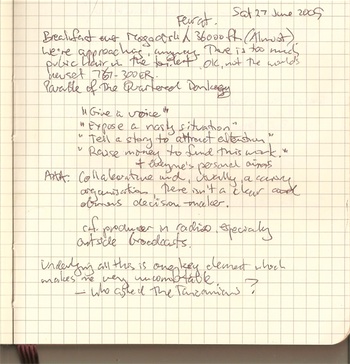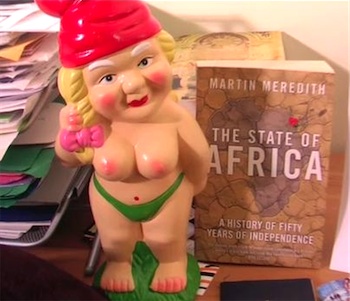
Saturday 27 June 2009. This isn’t exactly the world’s newest Boeing 767-300ER, and there’s slightly too much pubic hair in the toilets. Breakfast is being served, and my stupidly-expensive Moleskine notebook is filling up with notes about the Parable of the Quartered Donkey.
That’s quartered as in hanged, drawn and quartered.
I’m the donkey.
The smiling Kenya Airways staff go about their business of bread rolls and bitter coffee en route from Bangkok to Nairobi, where I’ll change for my flight to Dar es Salaam. I wake from a brief period of something vaguely approximating sleep to the realisation that Project TOTO has one significant flaw: multiple goals, with conflicting requirements.
Something deep in my gut says this is going to be a problem.
Flash forward to today. It’s only two weeks since I arrived in Tanzania and a week since I left again, but the world is eager to analyse the project’s “success” or “failure”. We already have Laurel Papworth’s Stilgherrian: Wherefor art thou, bloggers? (which has triggered some excellent discussion) and Fi Bendall’s Sharing the knowledge: How NGOs can benefit from online consumer awareness.
Both articles are well worth reading. Both highlight what I think is a serious problem: short-term thinking.
Continue reading “Breakfast over Mogadishu: fear at (almost) 36,000 feet”

